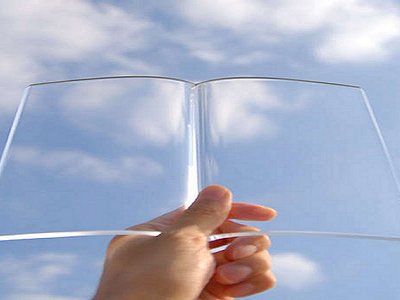
HOW TRANSPARENT SHOULD WE REALLY BE IN LIFE?
The move towards ever greater openness might have limits under God
Churches are not the only places where liturgies are found; wider society has just as many. They trip off the tongue without much reflection and we forget that many of these forms of words are recent inventions. Take the value of transparency. To argue against transparency is like opposing motherhood and apple pie. Anyone caught doing so is assumed to be suspect and trying to hide something rotten and corrupt; only those taking bribes could oppose it.
The theorist David Heald distinguishes between two kinds of transparency: the intrinsic and the instrumental. The former sees it as a primary good, an end in itself; the latter views it as a means to an end. Today’s internet culture is overwhelmingly geared to intrinsic transparency, the idea that public bodies should hold no confidential secrets and that if they do so, citizens are deprived of the truth. This fad has spread with viral speed to the private realm, where concepts of privacy are being re-written at a revolutionary pace. When the current teenage generation is aged, there will be no memory of old concepts of privacy; what is now termed ‘over-sharing’ may become the norm.
While the amount of detail a private citizen chooses to share with others is largely their own business, questions might be asked about the role of transparency in public life. Surveys have shown that decision makers who are aware of the kind of audience that will review their work tend to adapt their thinking to conform to what they believe will be expected of them. This may look impeccably like democracy, but officials are called to use their professional judgment and independence of thought; at times these may contradict wider opinion. Furthermore, if a public figure adopts one position to begin with, and it is known that this stance will be publicly available, research shows they are less likely to change their view after debate for fear of appearing double-minded. In this way, transparency may inhibit healthy policy-making.
The philosopher Onora O’Neill has even argued that transparency might erode rather than cultivate trust. A flow of unsorted information might increase confusion and those that fear everything they say or write may be made public can be tempted to massage the truth. Perhaps transparency is best seen as a means to an end, a state which promotes higher goods, like trust itself.
We are informed in our thinking by God’s character. Jesus is the light of the world, the one that scatters the darkness from before our path; this speaks more of the value of visibility than transparency: we need to see where we are going more usefully than through everything around us. Nevertheless, there is great spiritual value in the shedding of light to eliminate pockets of darkness in the world, for this exposes our deceit and cupidity, holding us accountable to others.
It is impossible and perhaps not desirable for there to be complete transparency in the courses of action we take in life, for we might be forever second-guessing our choices for the benefit of others rather than seeking the wisdom which comes from above. God himself - allowing for his revelation through creation, the scriptures and the life of Christ and his Spirit - is a mystery we cannot begin to fathom. Those who are made in his image, provided they act honestly, may bear something of that stamp.
POPULAR ARTICLES

Obama's Covert Wars
The use of drones is going to change warfare out of all recognition in the next decades.

Through A Glass Starkly
Images of traumatic incidents caught on mobile phone can be put to remarkable effect.

What Are British Values?
Is there a British identity and if so, what has shaped the values and institutions that form it?


